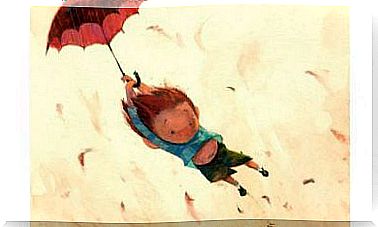What To Do If Your Child Always Tries To Control Others

We all know or have known one of those children who command, order and direct everyone around them. However, when it is our little one who takes this position, it is more difficult for us to recognize it. Many times we do not realize that our son always tries to control others; and, other times, although we see it clearly, we do not know how to remedy it.
However, this type of behavior is very harmful, since sooner or later it will seriously affect the child’s social relationships. Nobody wants to live and share their time with a dominant and controlling person, and our son can suffer rejection from his peers if he does not change his attitude. As parents, our task will be to find the origin of this behavior and help the child to modify it.

How does the controlling child behave?
A child’s need to control others can manifest itself in many different ways. Some use overt strategies like crying and tantrums to get others to do what they want. Many times, adults, trying to calm the child, end up giving in to their wishes.
Other little ones resort to emotional blackmail. In this way, they take advantage of the guilt, fear and other negative emotions that the other feels to condition their behavior for their own benefit.
However, sometimes, controlling attitudes are not so obvious and therefore go unnoticed. Some minors try to lead others using diplomacy and persuasion. They use a calm tone of voice and show a self-confidence that makes them seem more like born leaders than little dictators.
Why does your child always try to control others?
Before judging or blaming the child for his behavior, it is important that you understand why it occurs. There are several situations that may be why your child is always trying to control others:
- Roles at home are not well defined. In a functional home it is important that parents act as parents and children as children. When the roles are not clear, the child can adopt the position of the adult and feel entitled to make all the decisions and direct others.
- Parents are excessively permissive; there are no clear limits. When a child is given and has always been given everything he asked for, he does not learn to tolerate frustration. You expect everything to always happen according to your wishes and that others will please you at all times.
- You feel insecure. Many times the need to control others arises from fear and lack of confidence. The little one controls to ensure the attention of mother or the company of his friends, because he feels that if it is not in this way, he cannot obtain it.
What to do if your child always tries to control others?
If your child is always trying to control others, start by analyzing your own behavior as a parent. Have you been able to assume your role of authority? Do you set clear and consistent limits? If not, it is essential that you start doing it, because children are not born knowing how to tolerate frustration, but we have to teach them to accept a “no” and understand that their wishes cannot always be satisfied.

On the other hand, we have to explain to them that in order to interact with others they have to be respectful and assertive. You cannot force, coerce or blackmail others, but you have to learn to negotiate, give in and understand sometimes. We have to tell them that controlling others is not a good way to ensure their affection.
Mom still loves you even though she can’t play with you at the time, and your friend still appreciates you even though he wants to make other plans today. It is important to help them develop a more flexible and adaptable mindset, as rigid attitudes cause great suffering.
Finally, let’s lead by example. It is possible that your child has observed these controlling behaviors in the adults around him and has assumed them as his own. Therefore, take care of how you relate to him and to others; Make sure you are open, understanding, and tolerant so that your child can learn these strategies by copying.










